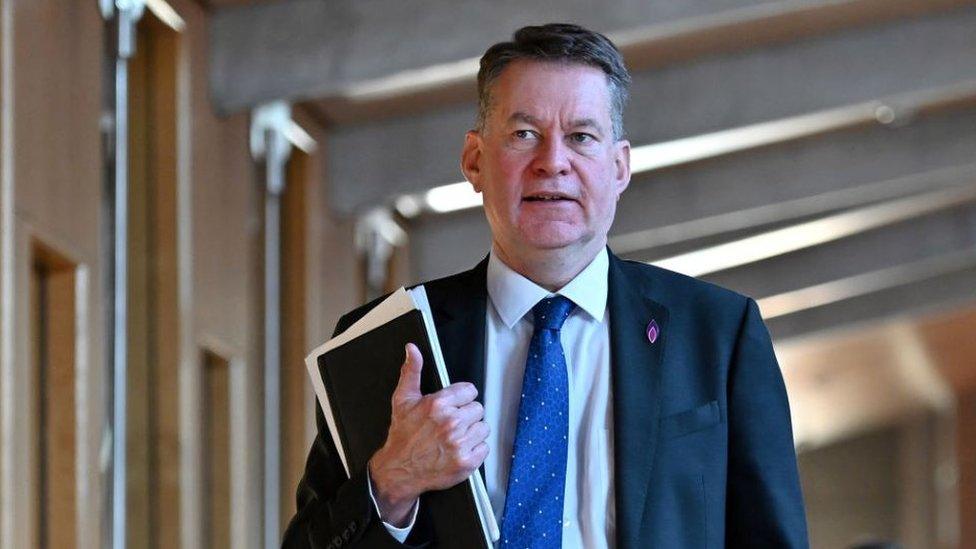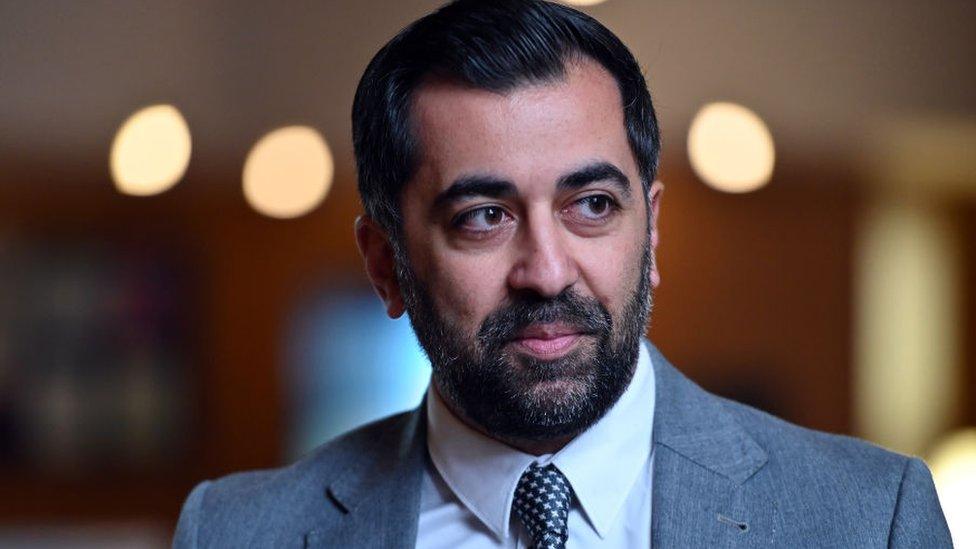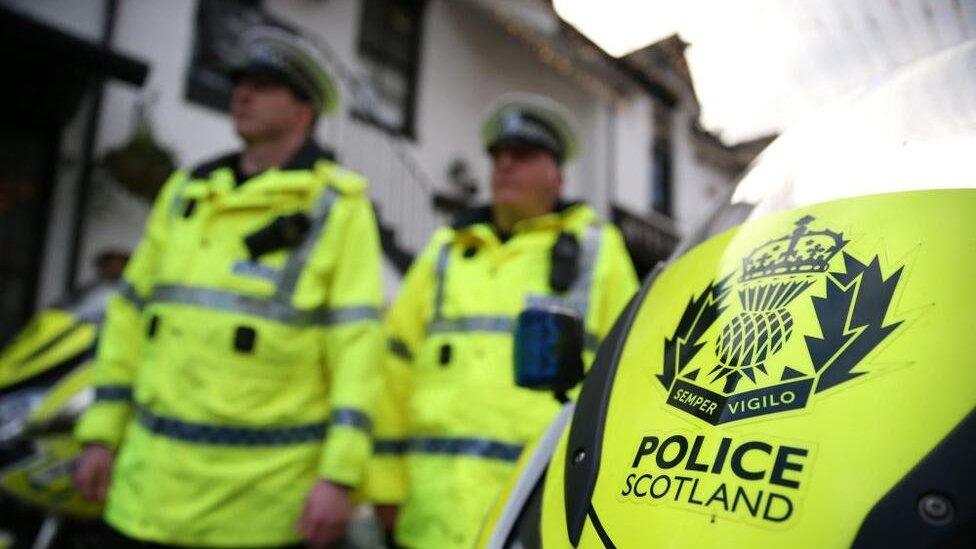MSP Murdo Fraser's legal threat to police over 'hate incident'
- Published

Murdo Fraser has accused the police of acting "outrageously" and "unlawfully"
A Tory MSP has threatened legal action against Police Scotland after the force logged a social media comment he made as a "hate incident".
Murdo Fraser likened identifying as non-binary to identifying "as a cat", in relation to Scottish government equality policies last November.
Police decided no crime had been committed after a complaint was made.
The force also said their recording helps "monitor tensions" in communities and informs police responses.
However Mr Fraser has accused police of acting unlawfully by recording it as a hate incident.
His complaint comes ahead of new hate crime legislation taking effect in Scotland from 1 April.
The dispute began when Mr Fraser commented on a newspaper article about the Scottish government's Non-Binary Equality Action Plan last November.
He posted: "Choosing to identify as 'non-binary' is as valid as choosing to identify as a cat. I'm not sure governments should be spending time on action plans for either."
Allow X content?
This article contains content provided by X. We ask for your permission before anything is loaded, as they may be using cookies and other technologies. You may want to read X’s cookie policy, external and privacy policy, external before accepting. To view this content choose ‘accept and continue’.
A member of the public made a complaint about the post. After considering the complaint, Police Scotland decided that he had not committed a crime.
But the post was recorded as a "hate incident", though this was not attached to Mr Fraser's name.
A separate complaint was later made with the Scottish Parliament's ethical standards commissioner, citing the police reference number. This alerted Mr Fraser to the fact that a "hate incident" had been recorded.
The commissioner judged that there did not appear to be a breach of the code of conduct for MSPs.
Legal action
In a letter to Police Scotland, Mr Fraser accuses the force of breaching the Human Rights Act, the Data Protection Act and the Equality Act as well as breaching Hate Crime National Guidance (HCNG).
The mid-Scotland and Fife MSP describes the guidance as empowering police forces to record non-crime hate incidents and called on the force to make changes to it, as well as to delete the hate incident.
He has threatened legal action if this does not happen.
Mr Fraser said: "Police Scotland has behaved not just outrageously, but unlawfully according to the legal advice obtained by the Free Speech Union.
"This is Police Scotland attacking free speech - but it is more sinister than that. My tweet wasn't pointing a finger at an individual - it was critical of a Scottish government policy."
Mr Fraser said police forces in England and Wales had decided not to record non-criminal hate incidents, but said Police Scotland has not done that.
New hate laws
Mr Fraser's complaint pre-dates the introduction of the Scottish government's new Hate and Public Order (Scotland) Act - which comes into force on 1 April.
It criminalises threatening or abusive behaviour which is intended to stir up hatred based on certain characteristics including age, disability, sexual orientation and transgender identity.
Police Scotland said inquiries were carried out after a report was made about an offensive tweet on 20 November - it said no criminality was established..
A spokesperson said: "The incident was recorded as a non-crime hate incident. Police Scotland have received a complaint relating to this matter which has been passed to the Professional Standards Department for assessment.
"Hate incidents are not recorded against alleged perpetrators. Recording is victim-focused and the process has been part of policing for many years. It helps us monitor tensions within communities enabling appropriate police responses and helps to build community confidence.
"Seemingly low level or minor events can have a significant impact on someone who may already be very vulnerable."


New hate crime laws will take effect in Scotland from the beginning of next week.
But it's important to stress this particular set of events has happened under the current system - it has nothing to do with the recent Hate Crime Act.
Though with its implementation looming, those who oppose this new legislation are getting more vocal in their criticism. And debates about hate crime and free speech are getting louder in Scotland.
Critics of the new legislation say it will clamp down on dissenting opinion, and that police will be "swamped" with complaints.
But the first minister has vigorously defended it, saying it will only affect individuals who look to stir up hatred against certain groups.
These laws aren't even operational yet, but we're getting a clear idea of how politically charged an issue this is.
Related topics
- Published21 March 2024

- Published19 March 2024

- Published14 March 2024
